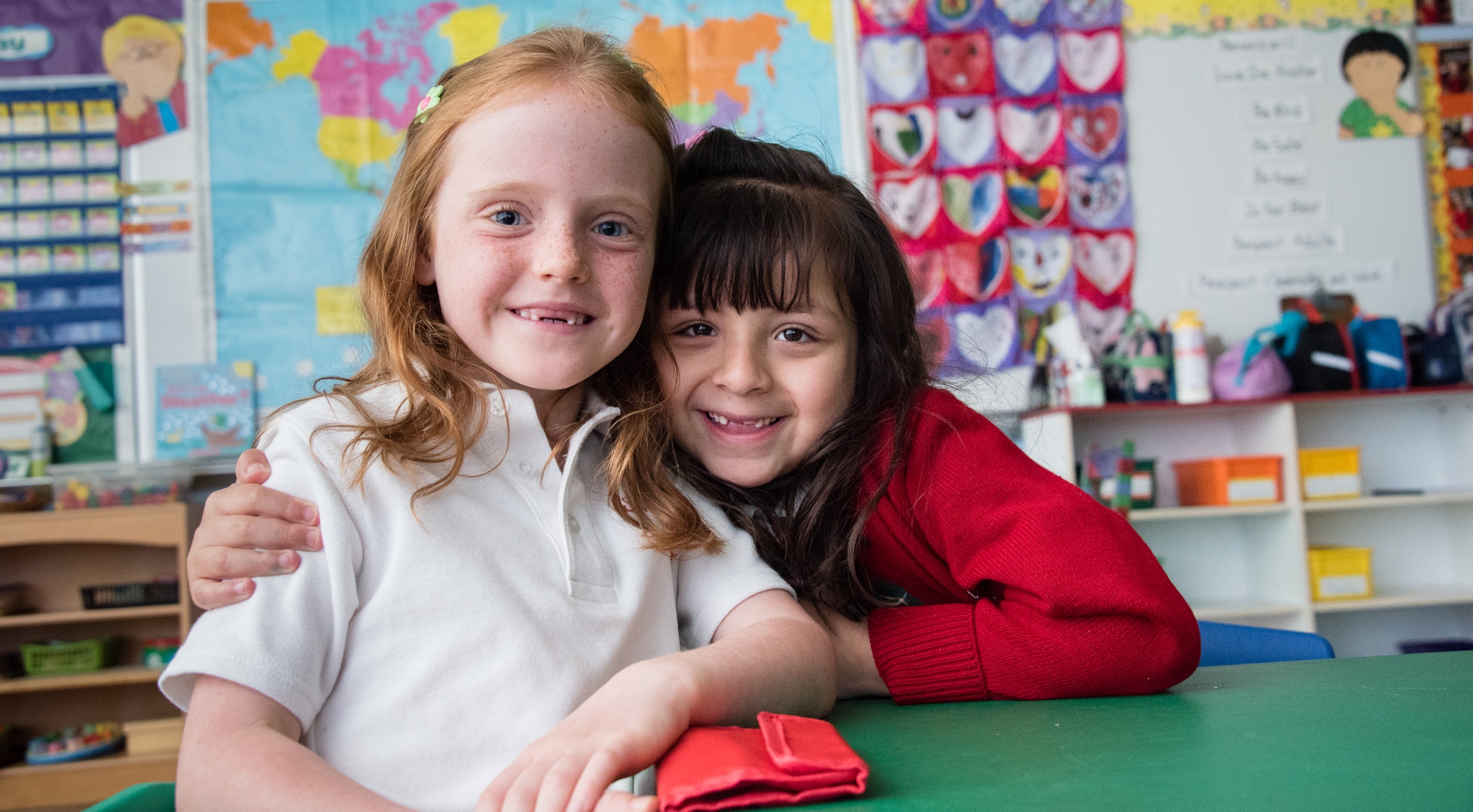Curriculum in Center-Based Learning
Skills and Knowledge to Help Children Succeed
Children have so much to learn about the world around them, their own capabilities and specific academic areas. The teaching methods and curriculum in our Pre-K and UPK help them develop the skills they will need to succeed throughout their academic careers and beyond.
Our classrooms use Center-Based Learning to encourage children to make their own choices about selecting activities. This creates self-motivated, independent thinkers and helps them develop social skills as they interact with their peers during various academic and play activities.
Each of the core academic subjects (literacy, math, science and social studies) has its own center. In addition, separate spaces are dedicated to our kitchen, dress up and dramatic play, snack, art, dollhouse, blocks, technology, SMART Board, listening and sand/water centers. Music and movement help children develop body awareness and outdoor play and recess promote motor and social skills.
The Archdiocese of New York Early Childhood Curriculum for Pre-K and UPK is based on the Core Curriculum Learning Standards, Developmentally Appropriate Practice, and NAEYC guidelines.
The following academic areas are covered in all Pre-K and UPK programs:
Literacy
Children develop their speaking, listening and emergent reader and emergent writer skills using many different materials and activities, in addition to our classroom library, throughout the day.
Math
Numbers and math concepts are reviewed every day and supported by the use of blocks, Legos, puzzles and more. These activities also support fine motor development, critical thinking and social skills.
Social Studies
As children learn to recognize differences in objects, they also begin to see differences in the world around them. We want children to embrace what makes them different and unique from their neighbors, while embracing others for their differences as well. Art, dramatic play and library are the primary centers where this subject is explored.
Science
Children love to explore and experiment with cooking, color mixing, and nature—all fun and exciting science subjects. As the children learn to process information based on observations, investigations, predictions and discussions, we introduce new subjects to indulge their natural curiosity in science.
Early Childhood Teachers
Caring Professionals to Guide Your Child’s Learning
Our teachers create a warm, nurturing environment where each individual child can develop and learn. They are the foundation of the excellent education children in our care receive, and maintain the highest level of qualifications for the ages they teach.
The Archdiocese of New York enjoys relationships with many nearby institutions of higher education that offer excellent Master’s programs in early childhood education and/or special education. Many of their graduate students complete their student teaching in our schools, or spend time in them as teacher’s assistants. When they go on to become teachers in our Pre-K programs, these “home-grown” professionals are already knowledgeable about our teaching methods.
Graduate students from the following colleges and universities currently participate with the Archdiocese of New York: Fordham University, Iona College, Lehman College, Manhattan College, Marist College, Mount Saint Mary College, St. Johns University, The College of Saint Rose.
Individual Assessment
Individual Attention to Every Child’s Progress
We carefully and thoughtfully monitor the progress of every child in our Pre-K and UPK programs, starting from the day they enter our care. We know that each child comes to us from a different background and with different skills, and we start teaching at whatever level is appropriate, based on our initial assessment. Throughout the year, we monitor your child’s learning through the use of checklists, photographs, anecdotal logs and a student portfolio with comments on their work.
Teachers and parents are partners in the teaching and learning process; information on student progress is shared and reviewed to help each child reach their full potential.




